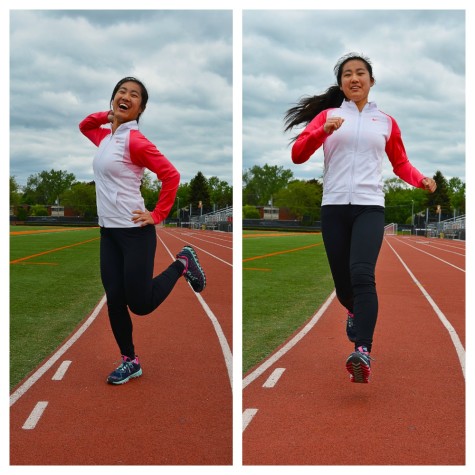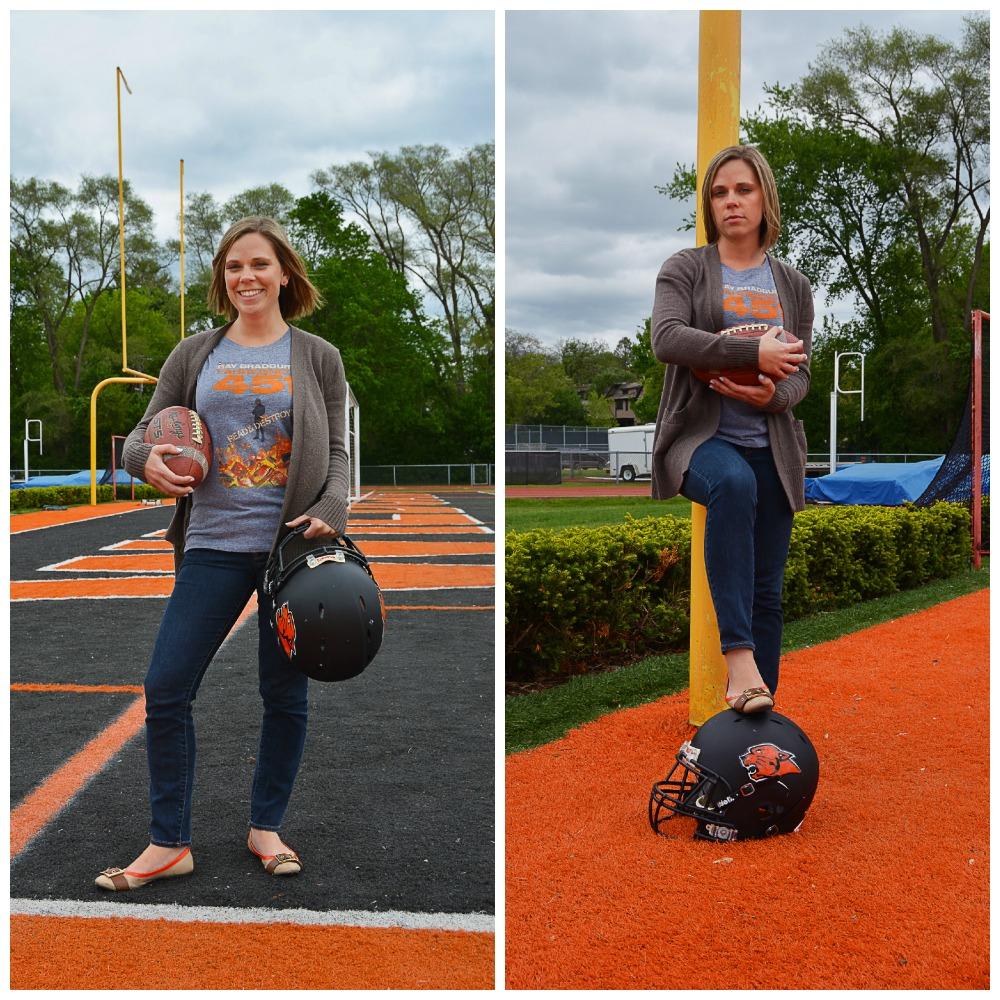‘Like A Girl’ Is Not A Bad Thing
May 28, 2015
Run like a girl. Strong for a girl. Throw like a girl. Hit like a girl. Fight like a girl.
Although girls have made many strides in the sports world, there still are many stereotypes and stigmas that exist around girls who decide to participate in the male-dominated world of sports.
According to the United Nations, even in the most matriarchal countries like Palau, it’s still a social norm for boys and men to play sports, not women.
These norms and perceptions are only aided by how women’s sports are not presented at nearly the same amount of time men’s are on ESPN and other sports networks on TV.
Plus, there’s a lot of different expectations put upon women in sports. In society, women are viewed as fragile and delicate, needing to be dolled up and beautiful. Being tiny is the name of the game, as most uniforms for girls sports suggest since they’re tight and revealing.
“In girls sports in general, girls are considered weaker than men and won’t ever be on the same level. If a girl is too thin, they’re not strong enough, but if a girl is strong, they’re not thin enough. In addition, muscular women are viewed as manly,” junior Gabbie Haws, who has been a part of volleyball, basketball, cross country and track at LHS, commented.

Junior Gabbie Haws, who has participated in volleyball, softball, basketball, cross country, and track throughout high school shows a smile on the left to demonstrate the stereotype of how girls seem to only smile in sports since they aren’t working as hard. However, on the right, Haws poses with her game face on.
These contradicting views are the buds to piercing stereotypes that scare girls away from sports and affect all girls in sports in varying degrees. Yet they end up affecting everyone because, according to a study conducted by Julie Boiché, a psychology researcher at the Epsylon Laboratory, once it becomes an accepted norm, it’s hard to break from the perceptions even if one doesn’t agree with them.
“As long as people think like that, it will be hard to change behavior. Young children and adolescents don’t want to play a sport that is not ‘appropriate,’ and the parents won’t push them,” Boiché further explained.
There also are perceptions that women who participate and excel at their sport (especially in softball and basketball) must be homosexual. These stereotypes branch out from how sports are dominated by males and how qualities that make athletes good at what they do (like “assertive,” “fit,” and “muscular”) are seen as manly, according to Clare Chandler at Texas Tech University.
“While female participation in sport has for the most part become normalized, new issues exist regarding enforced heterosexuality, lesbian stigmas, and exploitation of female bodies in sports marketing,” Clare explained in her study named “Stereotyping, Stigma, and Femininity in Female Sports.”
Adding into this, Clare also discovered that women try to act ultra feminine in other ways so they aren’t viewed as homosexual: “athletes employ what is called the ‘apologetic defense’ in which they accentuate their femininity by wearing makeup, jewelry, growing their hair long, wearing skirts and dresses off the field, and frequently hanging out with members of the opposite sex.”
However, some women’s sports require a more feminine attire. For example, tennis and lacrosse both have skirts as part of their official uniform and, according to sophomore Katie Xu, who participates in tennis and track, “For a lot of sports, girls will have tighter fitting uniforms than guys.”

Sophomore Katie Xu, who plays tennis and runs track, poses as a stereotype of running on the left. And on the right, she poses as the reality of how running looks.
Haws also disclosed that “in track, cross country, and volleyball, the expectation is to be fit and thin, especially with tight uniforms.”
These assumptions help feed into the stereotypes that women are weaker or below men just because of the differences in uniforms and in strength.
“I kind of do weightlifting on my own and I notice that in the gym it’s mostly guys in the weight room and women are mostly on the cardio machines, and that seems like where they’re supposed to be. Plus, a lot of people think that women shouldn’t weight lift because it’ll make them manly and muscular, which isn’t really fair because we’re all people and and we just want to get stronger,” Xu elaborated about the stigmas that surround women in masculine-dominated areas of sports.
Also, the main reason why there are major stereotypes with women in sports is because the rules for them are different than how guys play.
According to District Chronicles, an online college sports website, “many of the rule differences between men and women who play the same sport can be seen as concrete reasons why women are considered inferior. A woman’s basketball is smaller than a man’s is, men’s hurdles are placed higher than women’s, men’s poles are thicker than women’s poles in pole vaulting, and softball is played with a larger ball than in baseball.”
With different rules for each gender, it makes it easier to call women weaker just because they have lower weights or smaller equipment, even though the rules are made differently because men and women are built differently physiologically.
Senior Jeanette Burke, who has played softball and lacrosse agreed, explaining that “[she’s] offended when people say that women’s sports are a joke. Just because we have to play the game differently doesn’t mean that men are any better than us. Trying to belittle women athletes doesn’t make male athletes any better and vice versa.”
Although stereotypes still persist throughout sports, women are beginning to have less stigmas in them, and according to multiple studies, including the UN’s, more women are in sports now than in any other era. Also, the UN is utilizing sports to promote gender equality, which is listed in one of their chapters of their goals for the world.
They identified problems such as HIV and AIDS, decreasing child mortality rates, and improving health of children and women as reasons why they need to use sports to build confidence in women so they can help battle these problems that affect them and their communities.
“I think, and I feel as though these stereotypes are slowly getting better or going away from when I played sports, but I think the stereotypes in terms of athletes in general, with girls versus boys is that, just what we always think of, that guys are tougher and that girls sports aren’t as physical, they’re not as hard to play, or they don’t take as much athleticism, and I definitely don’t think that’s the case,” said Ms. Kristen Kuceyeski, an English teacher who played football when she attended LHS. “Especially because, you know, with something like cheerleading. I know when I was in high school, cheerleading, a lot of people said that it wasn’t a sport, and that has changed so much that to be a cheerleader these days you have to be a gymnast, and you have to be physically fit, and athletic, and so I’m hoping that those stereotypes are sort of going away with time and I think that they have gone away somewhat.”

